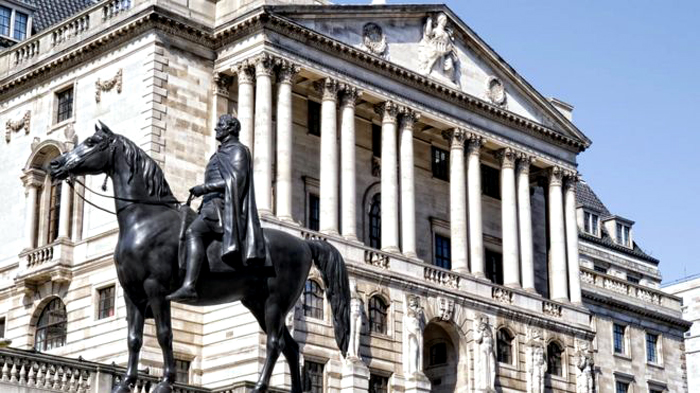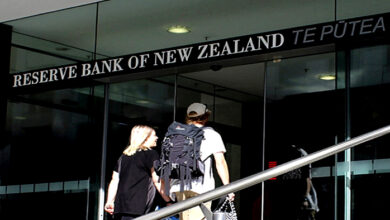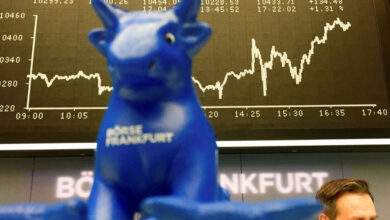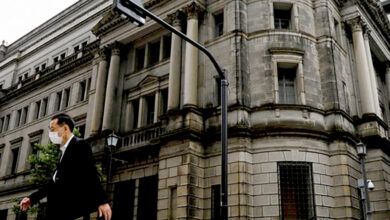In a scramble for cash, British pension funds ask the Bank of England (BoE) to buy more bonds.

London: Pension plans in the UK are rushing to get hundreds of billions of pounds to cover their derivatives positions before the Bank of England stops helping them stay afloat.
BOE Governor Andrew Bailey said on Tuesday that the bank would stop buying bonds on October 14. This means that pension plans will have to scramble to find at least 320 billion pounds ($355 billion) in cash to meet a collective cash call after yields went up, leaving them without a buyer of last resort.
But after the schemes asked for a longer deadline, the Financial Times reported on Wednesday that three sources said the BoE had privately told lenders that it was ready to keep the emergency programme going past Friday if the market needed it.
On Tuesday, the central bank tried for the fifth time in just over two weeks to bring order back to the markets. This was done because the rise in yields on September 28 threatened to overwhelm pension plans that had bought a lot of leveraged derivatives.
Pension funds have been trying to raise money by selling UK government bonds, or gilts, index-linked bonds, and corporate bonds for the past two weeks, but sources say the task of raising money is getting harder.
Related: The Bank of England opens a temporary repo facility with a bigger amount of collateral.
Adding to the pain, providers of so-called liability-driven investment strategies (LDI) are asking for more cash to support new and older hedging positions.
According to four consultants who work with pension plans, the cash buffers that are needed now are about three times larger than what has been asked for in the past. This is because market players want bigger cushions against bigger swings in bond prices.
Steve Hodder, a partner at pension consultants Lane Clark & Peacock, said, “This week, the gilt market hasn’t fully calmed down, so a lot of schemes are looking at this and saying, ‘We need to do a bit more.'” This is why there are new efforts to get even more collateral across.
Estimates of how much pension funds need to sell vary, but they are all in the hundreds of billions of pounds, and no one knows how much cash the funds have already raised. Consultants say that some schemes will also cut their overall LDI exposure if they can’t meet the collateral requirements.
The Bank of England stepped in on Tuesday to buy index-linked bonds, which are a much smaller market than gilts and are mostly held by pension funds. This week, index-linked bonds had another big drop in price.
The Pensions and Lifetime Savings Association asked the BOE on Tuesday to think about extending the bond-buying programme past October 31.
Later on Tuesday, Bailey spoke in Washington and said: “And here’s what I want to say to the funds and firms that manage those funds. You still have three days. You have to finish this.”
After the FT said that the bank might be having second thoughts, sterling went up 0.4% to $1.1008. reconsidering.
In a note, Commonwealth Bank of Australia (OTC: (OTC: CMWAY) said, “The risk is that the pound quickly reverses the move if BoE officials deny the report.”
Dash for Cash
LDI helps schemes match what they owe to their members with what they have. Pension funds used to set aside cash to cover a move in government bond yields of 100 to 150 basis points, which is usually a huge safety net but has been wiped out by some of the most volatile days on record.
Consultants and pension industry experts said that these requirements for a collateral buffer went up by 300 basis points last week. Due to more jumps in bond yields this week, some plans have even been requested for 500 basis points, which is still a rare amount.
The rush for cash in the 1.6 trillion-pound LDI industry, which became very popular with Britain’s defined benefit schemes during a decade of low interest rates, is forcing pension funds to get rid of government and corporate bonds and even less liquid assets like property and private equity. Columbia Threadneedle, a company that manages investments, said on Tuesday that it has stopped trading in the 453 million-pound CT UK Property Authorised Investment Fund and its feeder fund to increase liquidity.
Barclays (LON:BARC) said on Tuesday that it would give its LDI counterparties access to more cash as part of the BOE’s Oct. 10 launch of an expanded repo facility. This is another sign that the market is in trouble. The facility makes it possible for schemes to park more assets, such as corporate bonds with low ratings, in exchange for cash.
How much more?
Nikesh Patel, head of client solutions at Kempen Capital Management, says that pension plans need to put up 160 billion pounds in cash as collateral for every possible 100 basis point change in yields.
He thinks that the total cash funds now needed to post could be 320 billion pounds or more because yields have changed even more in the last two days and the industry has stricter requirements for collateral.
“We are definitely not there,” he said when asked if the funds were close to selling assets to get the money they needed. He said that the past week was “one of the biggest ever for sell orders. “This week, you’re getting more sales.”
Related: As the Bank of England’s boost wears off, the value of the pound falls and stocks stop rising.
Hemal Popat, a partner in investments at Mercer, said that regulators, led by the BOE, put pressure on banks to ask for more collateral so that the system wouldn’t be stressed even more.
He thinks that pension funds could sell assets worth around 300 billion pounds as they change their hedging positions. It’s not clear how much they may have already sold, though. He thought that gilts could bring in 100 billion pounds, and other assets like global credit, global equities, and asset-backed securities could bring in the rest.
The BOE didn’t say anything else.
Legal & General Investment Management and Insight Investment, two of the biggest LDI providers, did not answer our requests for comments.
Craig Inches, Head of Rates and Cash at Royal London Asset Management, said that government bond markets were still not very liquid, and yields were likely to go up even more whether or not the BoE extended its bond-buying on Friday.
“In the end, it comes down to the fact that many plans need to rebalance their portfolios,” he said. “That won’t stop, and it will take some time.”
1 dollar equals 0.9007 pounds





